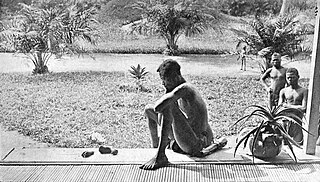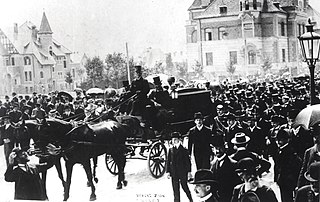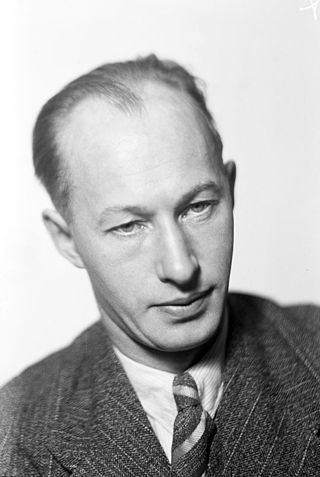| |||||
| Decades: | |||||
|---|---|---|---|---|---|
| See also: | |||||


Events from the year 1904 in Sweden .
| |||||
| Decades: | |||||
|---|---|---|---|---|---|
| See also: | |||||


Events from the year 1904 in Sweden .
| | This section needs expansion. You can help by adding to it. (June 2015) |
| | This section needs expansion. You can help by adding to it. (June 2015) |
The 1913-14 season in Swedish football, starting August 1913 and ending July 1914:

Gurli Ewerlund was a Swedish freestyle swimmer who won a bronze medal in 4×100 m freestyle relay at the 1924 Summer Olympics, along with Aina Berg, Wivan Pettersson and Hjördis Töpel. She also competed in the individual 100 m and 400 m events, but failed to reach the finals.

Wivan Pettersson was a Swedish swimmer. She won a bronze medal in 4 × 100 m freestyle relay at the 1924 Summer Olympics, along with Aina Berg, Gurli Ewerlund and Hjördis Töpel. Individually she finished fourth in the 200 m breaststroke and failed to reach the 100 m freestyle final. In 1925 she set two Swedish records in the 200 m breaststroke.

Hjördis Viktoria Töpel was a Swedish freestyle swimmer and diver who competed at the 1924 Summer Olympics in Paris and at the 1928 Summer Olympics in Amsterdam.

Ragnar Sohlman was a Swedish chemical engineer, manager, civil servant, and creator of the Nobel Foundation.
Events from the year 1974 in Sweden

Elisabet Anrep-Nordin, was a Swedish educator and principal of a school for blind and deaf students from 1886 to 1921. She was also elected to the city council of Vänersborg in 1910.
The Björkén Prize is a scientific award given by Uppsala University. It is awarded for outstanding research in science and the theoretical branches of medicine. The prize was established in 1893 from a donation given by university lecturer John Björkén (1833–1893). Björkén was a physician and medical assistant professor in surgery and obstetrics at Uppsala. The prize was first awarded in 1902 on the day of his death.

The following events occurred in January 1904:

The following events occurred in May 1904:

The following events occurred in July 1904:

The 1974 Nobel Prize in Literature was awarded jointly to Swedish authors Eyvind Johnson (1900–1976) "for a narrative art, farseeing in lands and ages, in the service of freedom" and Harry Martinson (1904–1978) "for writings that catch the dewdrop and reflect the cosmos." The winners were announced in October 1974 by Karl Ragnar Gierow, permanent secretary of the Swedish Academy, and later sparked heavy criticisms from the literary world.

The Nobel Committee for Literature is the Nobel Committee responsible for evaluating the nominations and presents its recommendations to the Swedish Academy, which then selects, through votation, the Nobel Prize in Literature.